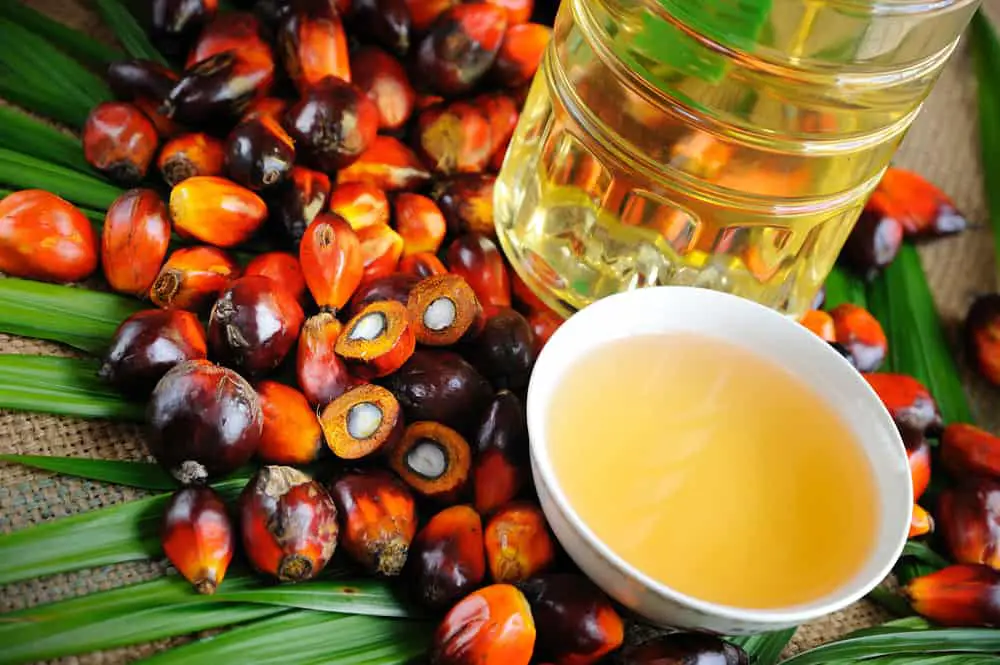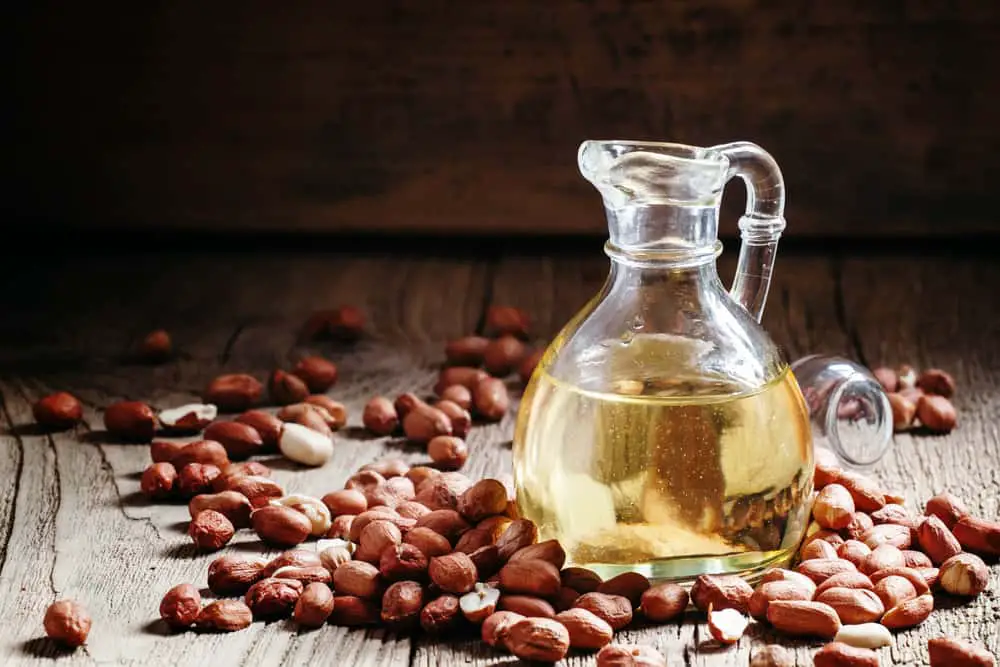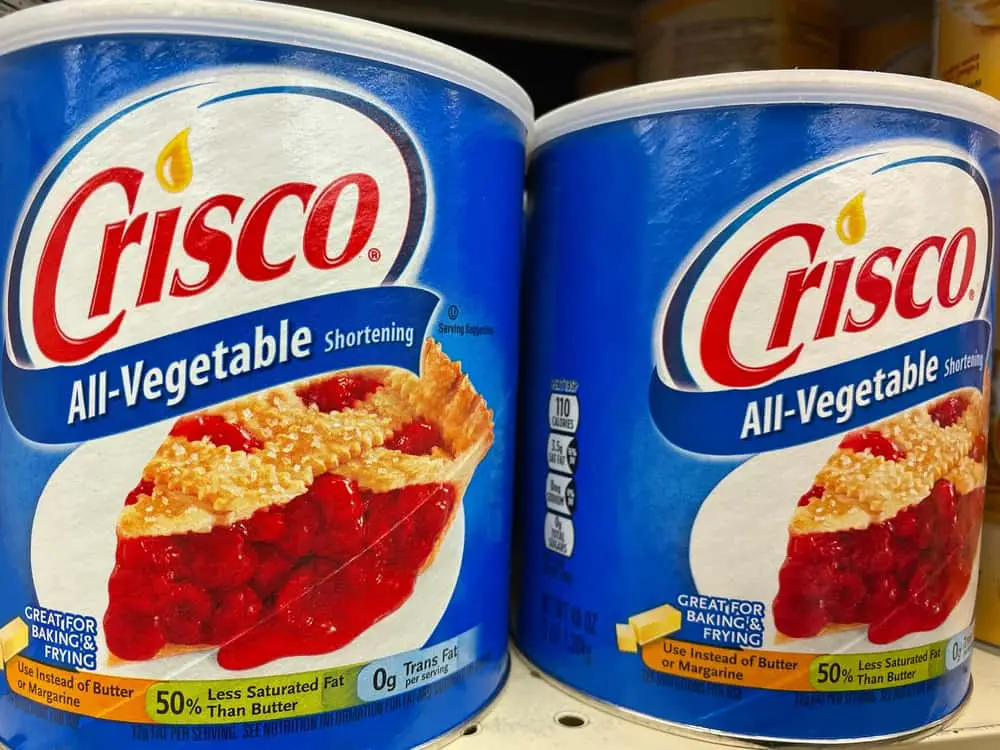When it comes to crafting the perfect donuts, the ingredients get a lot of attention. But there’s one part of the process that’s often forgotten, but which makes a huge difference to the results. That’s the oil in which the donuts are fried.
These days, there are lots of different options on the market. But what’s the best oil for frying donuts?
That’s what we’re here to find out! We’re going to take a look at the pros and cons of the different options. And we’ll share everything you need to know to make your decision.
Ready? Let’s get started!
Why is the oil important?
Let’s start by taking a look at just why any of this matters.
When you’ve made your donut, the final step is to deep fry it. Your donut is going to be fully immersed in the oil. So any flavor is going to affect the way your donut tastes.
And it will also affect the texture of the exterior, plus the way it feels in your fingers and your mouth. In other words, you want a crisp outside that isn’t greasy.
One thing the oil won’t affect, though, is the texture of the interior of the donut. That comes earlier in the process, and results from the ingredients you use, and the way you mix the dough. Even choosing the perfect frying oil won’t give you a donut that’s light and airy inside.
What makes a good oil for donut frying?

Flavor
We’ve already seen that the donut is going to be immersed in the oil. That means that the flavor of the oil – or rather, the lack of it – is a key criterion for success.
You want something that’s not going to interfere with the taste of the dough. And that’s something it’s very easy to test before your oil gets anywhere near the fryer!
Just pour a small amount onto a spoon and give it a taste. What does it remind you of? The ideal answer is, “Nothing at all!” A neutral oil won’t get in the way of your donut’s flavor.
Smoke point
The next important aspect is the smoke point of the oil. Deep frying can be a dangerous business – the oil will be heated to very high temperatures. That’s important to create the crisp coating you want for your donut. But it also means it’s vulnerable to beginning to smoke, and even catching fire.
To deal with that risk, you want an oil with a high smoke point. The smoke point is exactly what it sounds like – the temperature at which the oil begins to give off smoke.
When it comes to frying donuts, you need a temperature of between 350 and 365 degrees Fahrenheit. So you want an oil that won’t begin to smoke until it gets hotter than that.
Color
The oil you choose will also affect the color of your donuts. In most cases, you’ll want to keep the donuts a pale golden color. And that won’t be possible if the oil you choose has a very dark shade.
Refined and unrefined versions of the same types of oil can be very different in color. Unrefined oils are often much darker.
Cost
Whatever oil you choose, you’re going to need quite a lot of it. Donuts are typically fried in a depth of about 2 to 3 inches of oil.
That makes choosing a cost-effective option a sensible approach for your household (or business) budget. After all, the cheaper the oil, the more donuts you can fry for your money!
The Best Oil for Frying Donuts
So now you know what you’re looking for, let’s look at the different options and how they measure up.
1. Canola oil

Canola oil is made from the seeds of the canola plant. And it has several characteristics that make it a great choice for frying donuts.
First up is the flavor, which is pretty non-existent. Taste a little and you’ll see for yourself – it doesn’t taste of anything much at all. That means it won’t interfere with the flavor of your doughnut.
Then there’s the smoke point. It’s about 400 degrees Fahrenheit, a healthy margin above the 365 degrees needed for lightly crisp doughnuts.
It’s a pale yellow shade, so it won’t darken your donuts either. In fact, it’s amongst the palest colors of any cooking oil.
Finally, there’s the price. Canola oil is produced in many countries around the world, so there’s always a plentiful supply to keep down prices. That means your 3 inches of frying oil isn’t going to cost a fortune.
For all these reasons, canola oil is one of the most popular choices out there for frying donuts. And it has some health advantages too.
It’s very low in saturated fats that are damaging to heart health. And it’s high in unsaturated fats, including a substance called ALA. ALA is an omega-3 fatty acid and its full name is alpha-linolenic acid. There’s some limited evidence to suggest that it’s good for your heart.
Just note that canola oil is available in both refined and unrefined forms. The type you want is refined canola oil. The unrefined variety has a darker color and lower smoke point. It’s more expensive too.
It’s also worth being aware that many kinds of canola oil have been genetically modified. Indeed, that’s the case for 90 per cent of the canola plants used for oil in the USA. That means it won’t be the right choice if you’re aiming for a GMO-free diet.
2. Sunflower oil

Sunflower oil shares many of the characteristics that make canola oil a good donut frying choice.
To begin with, it too has a neutral flavor, meaning it won’t affect the taste of your donuts. It also means it’s a popular choice for plenty of other fried foods. So if you’re looking for an oil that can be used at home for multiple purposes, it’s a good option.
The smoke point is even higher than for canola oil – about 450 degrees Fahrenheit. Maintain the right donut frying temperature, and the risk that your frying oil will catch fire is very low indeed.
The color is good too – a pale golden shade that will work beautifully with your doughnuts. And it won’t darken as the temperature rises.
It is, though, vulnerable to supply issues. Both Russia and Ukraine are major producers, so Russia’s invasion of Ukraine has seriously impacted worldwide supply. As a result, prices have rocketed, and it can be difficult to find sunflower oil at all.
There’s also debate over the health impacts of sunflower oil.
Different types of sunflower oil have different levels of linoleic acid. The type of sunflower oil most often used in the US has between 15 and 35 per cent linoleic acid. There’s some evidence that too much of it can lead to inflammation, connected to conditions including obesity and cancer.
3. Palm oil

Some people swear by palm oil for frying donuts, and it certainly has some advantages. It has a smoke point of around 450 degrees Fahrenheit, so it will easily cope with the temperatures needed for donuts. And it has a fairly neutral flavor that won’t intrude on the donut taste.
It’s cheap too, making it an economical choice for commercial operations. Indeed, donut behemoth Krispy Kreme uses a blend including palm oil to fry their donuts.
But despite efforts to improve its sustainability, palm oil production has a significant impact on the planet. Deforestation has destroyed habitats for wildlife. And even recent sustainability initiatives have had limited impact.
The health impacts of palm oil are also unclear. It’s high in saturated fats, which can be bad for the heart. But it’s also a good source of antioxidants, which can protect against some kinds of heart disease.
All in all, then, there are plenty of reasons palm oil works well for frying donuts. But the way its production damages the environment means it’s not the best choice. Both canola and sunflower oil have the same benefits, without the downsides.
4. Peanut oil

Another option to consider is peanut oil. This pale golden oil won’t darken your donuts. And its high smoke point of 437 degrees Fahrenheit means it won’t risk catching light when used for deep frying.
It doesn’t have quite such a neutral flavor as oils like canola or sunflower, though. As you might expect, there’s a hint of nuttiness. That means it can work very well in some savory dishes, particularly in Asian cuisine.
And while it can suit some donuts too, it won’t be the right choice for all flavors.
One of the major drawbacks of unrefined peanut oil is that it’s harmful to the increasing number of people with nut allergies. It is, however, possible to buy peanut oil that has had the allergens removed through chemical processing.
The health effects of peanut oil are still the subject of debate. It’s high in vitamin E, and contains antioxidants that can help lower cholesterol and improve heart health. But it’s also high in Omega-6 fatty acids. Levels of Omega-6 that are too high are linked to inflammatory conditions.
And when heated to high temperatures, it can release free radicals. These are chemicals that have been linked to heart disease, premature aging, and certain types of cancer.
5. Butter

Butter has been used in cooking for centuries. So is it an option for frying donuts?
Unfortunately, the answer is no.
The buttery flavor here isn’t neutral. But who doesn’t like butter?! If you’re going to have a flavor to interfere with the doughnut, butter isn’t a bad option.
But sadly, that’s not the only issue. A bigger problem is the low smoke point. Butter will begin to smoke at temperatures of about 300 degrees Fahrenheit.
That means you just won’t be able to get it hot enough to give your donuts a crisp shell. More likely, it will catch fire as you heat it, creating a blackened donut that tastes of smoke instead!
You could try frying your donut for longer at a lower temperature – but that won’t give you the lightly crisp outer texture you want. And the hotter the butter gets, the browner it will turn. That means your donuts will suffer the same fate, turning from golden to an unattractive dun shade.
It also fails the cost test. Butter is relatively expensive, and it’s solid at room temperature. So getting enough to melt for that minimum 2-inch frying depth won’t be economical.
6. Vegetable shortening

Another possibility you may be considering is vegetable shortening. (“Shortening” is a term used for any fat that’s solid at room temperature.)
Although free of animal products, this has many of the same characteristics as butter. And that means that it has many of the same problems when it comes to frying donuts.
Its 360-degree smoke point is a little higher than butter’s. But at about the same temperature as you need for frying your donuts, a smoky flavor is a serious risk. And unless you manage to keep the temperature completely stable, you may have a fire on your hands.
And like butter, it will turn brown as it gets hotter. That will leave your donuts a dark color that’s not very appealing.
It won’t keep fresh as long as oils either. And you’ll need a lot of it to create enough liquid fat for frying, making it an expensive proposition.
So all in all, this is one option it’s best to steer clear of when it comes to donut making.
The verdict
There are lots of different types of cooking oil out there, and they all have their advantages and disadvantages. The health impacts in particular are a mixed bag, and our understanding of how oils behave at high temperatures is still evolving.
But before getting too hung up on that, it’s worth remembering that donuts are hardly a health food! They’re best enjoyed as an occasional tasty treat. So it’s probably not worth worrying too much about the balance between the health risks and benefits of your cooking oil.
Overall, our top choice is canola oil. Its neutral flavor and reasonable cost are significant advantages. And its smoke point is high enough to fry your donuts without worrying about smoke or flames. Sunflower oil is a good alternative too.
Whichever oil you choose, we wish you luck in frying your next batch of donuts. We hope they turn out brilliantly!

